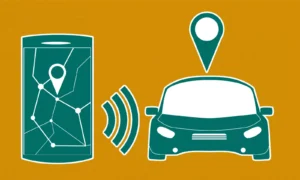Researchers at Imperial College London say they have simulated self-driving fleet impacts using real-world data, providing suggestions for their optimal deployment in cities.
They say their simulations show the potential of fleets of autonomous vehicles (AV) on congestion, emissions, public transport and ride-sharing services.
The Imperial team analysed tens of thousands of possible deployment scenarios using real-world data and a range of service parameters and fleet management algorithms with the aim to ensure such services run efficiently and profitably while reducing knock-on effects to other modes of transport, such as active and sustainable travel.
The team modelled the impact of AV fleets using data from existing road networks and real-world travel demand patterns and built upon decades of research on passenger behaviour, such as how likely someone is to choose a mode of transport over others based on price, convenience and travel times.
In time, as AVs are likely to operate throughout the day, without the need for driver breaks, there is the potential for them to waste energy and increase congestion by completing ‘empty miles’. Algorithms that the team has developed can help optimise the fleet, making sure only enough vehicles are operating in the right areas to meet demand without wasting energy.
The team also simulated the impact of electrifying AVs, showing how the emissions from road transportation could be reduced.
Researchers from the Transport Systems and Logistics Laboratory (TSL), part of the Department of Civil and Environmental Engineering worked with AV software company Oxbotica in a project called SHIFT, funded by a £1.58 million grant awarded by the Centre for Connected and Autonomous Vehicles and delivered through Innovate UK.
Transport for London was also involved, providing data to aid understanding of how the deployment of AVs could vary across different areas of London and the need for any such deployment to work towards supporting the central goal that by 2041, 80% of all trips in London are to be made on foot, by cycle or using public transport and that London’s air quality is improved.
The project partners’ SHIFT Autonomous Deployment Report includes details of the Imperial team’s simulations, and provides first-of-its-kind driver safety guidelines, an AV build manual and a data infrastructure framework to help operators take AV demonstrations to larger-scale service deployments in the UK.
Dr Panagiotis Angeloudis, in Transport Systems & Logistics at Imperial College London, said, “The deployment of autonomous vehicle technologies has the potential to revolutionise mobility in cities around the world. Through the SHIFT project, we had an opportunity to study their potential impacts on the rest of the transport network in an unprecedented level of detail.
“Using the tools that we developed, stakeholders can now plan better for the deployment of autonomous vehicle technologies and be better prepared for the future.”
Dr Marc Stettler, Senior Lecturer in Transport & Environment, and one of the Imperial investigators in this project explained “Proper management of autonomous vehicle fleets is essential to minimising energy consumption and environmental impacts. We want to take advantage of the potential to increase passenger occupancy and avoid vehicles cruising around looking for passengers, thereby reducing vehicle kilometres travelled.”
(Picture – Imperial College)
























